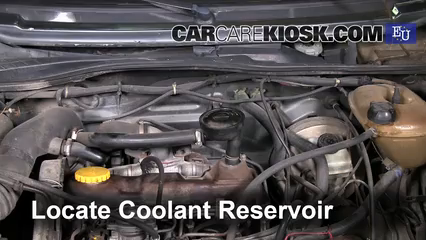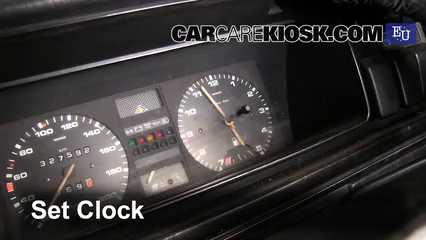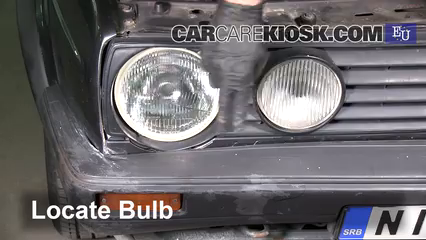How to Add Brake Fluid: 1988 Volkswagen Golf TDI 1.6L 4 Cyl. Turbo Diesel
Volkswagen Golf Model Years - 1984, 1985, 1986, 1987, 1988, 1989, 1990, 1991
How to add brake fluid and check brake fluid level
Hans Angermeier is an ASE certified Maintenance and Light Repair Technician and has produced over 100,000 videos showing drivers how to fix things on their cars. He has broad expertise on basic repair procedures covering the majority of cars on the road. Over the past 10 years, Hans has been focused on building CarCareKiosk, which is visited by millions of drivers each month.
- Lake Ford helped make these videos
- Feedback
- Download Volkswagen owners manuals
When you hit the brake pedal in your 1988 Volkswagen Golf it pumps brake fluid down to your brakes which increases the pressure to make your car slow down. If you don't have enough brake fluid in the brake fluid reservoir, air can get in your brake lines and your Golf won't stop properly. The video above shows you how to add brake fluid to your Volkswagen Golf. If you are adding brake fluid to your Golf on a regular basis, you should check for leaks (we have a video for this too!) As with most fluids in your engine, brake fluid can cause serious harm if you get it in your eyes, so be sure to wear safety glasses and gloves. Brake fluid will also make your paint peel off if you spill it on your Golf, so be careful not to spill it.
When adding fluid to your Golf, it is important to check your owners manual for the correct type to add - it likely be either DOT 3, DOT 4 or DOT 5, also known as silicone brake fluid. Do not shake the fluid before pouring it in your vehicle - the air bubbles will foul up your brake lines. Be sure to discard bottles of brake fluid that are over a year old - brake fluid sucks the moisture out of the air and the water vapor in the fluid can rust out your brake lines quickly. Brake fluid breaks down with use and should be changed every 2 years in your Volkswagen Golf or whenever it looks dark in color - this will make the internal brake components last longer.
- Advance Auto coupon for
20% off entire order: KIOSK20














 STOP AND SEAL LEAKS
STOP AND SEAL LEAKS EXTENDS A/C LIFE
EXTENDS A/C LIFE PROTECTS AGAINST A/C WEAR
PROTECTS AGAINST A/C WEAR